June 10, 2024
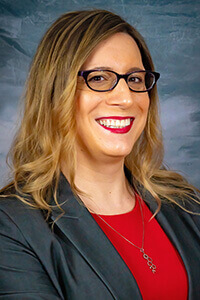 Judge Christa Moseng ’96 has been an Administrative Law Judge for Minnesota since 2021 and is the immediate-past chair of MNclusive, an LGBTQIA+ resource group for state employees. She graduated with her B.A. from Grinnell College and her J.D. with Distinction from the University of Iowa College of Law. While in law school, she was a senior managing editor of the Journal of Gender, Race, and Justice. Judge Moseng has nearly a decade of experience in public utility matters and rulemaking. She is known for her technical expertise, deep commitment to public service, excellence in legal writing, and commitment to inclusion and equity, particularly for the LGBTQIA+ community.
Judge Christa Moseng ’96 has been an Administrative Law Judge for Minnesota since 2021 and is the immediate-past chair of MNclusive, an LGBTQIA+ resource group for state employees. She graduated with her B.A. from Grinnell College and her J.D. with Distinction from the University of Iowa College of Law. While in law school, she was a senior managing editor of the Journal of Gender, Race, and Justice. Judge Moseng has nearly a decade of experience in public utility matters and rulemaking. She is known for her technical expertise, deep commitment to public service, excellence in legal writing, and commitment to inclusion and equity, particularly for the LGBTQIA+ community.
While not leading the effort, she participated by offering legislative testimony about the legal implications of the trans refuge bill that passed in 2023. During hearings, Judge Moseng shared: “What brings us here today is a concerted effort, in other states, to deny human rights that Minnesotans take for granted—rights like the right to have a family, access medically necessary health care, and to have children with a minimum of government interference. If there’s one thing that I know that a public official can safely say, it’s that Minnesota is not Florida, or Texas, or Oklahoma, or Utah. We do not threaten to pull families apart. We do not erase trans people from public life and accommodations… Senate File 63 would protect children, families, and caregivers in Minnesota from extraterritorial laws and orders that could interfere with the right to receive gender-affirming healthcare in Minnesota… It would substantively strengthen Minnesota’s position as a human rights leader in the United States.”
Please take time to learn more about Judge Moseng and her work via the Q&A below:
Please describe your life’s work (personal and professional) today. What are you most proud of?
I try to make room for trans people to be comfortable as ourselves. I’ve done that by fostering an online community where trans and gender-questioning people can safely share joys, challenges, and information; writing and distributing a practical guide for overcoming wrongful insurance-claim denials; helping craft state-employee policy changes; and working extensively with other community members and allies. I relish anytime a trans person finds life or transitioning easier, fairer, or less stressful because of something I worked on or did.
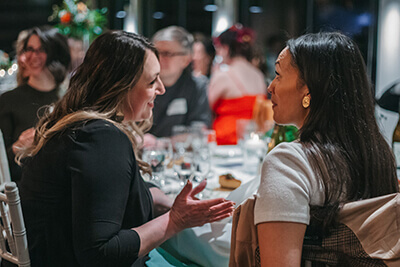 Thank you to everyone who helped to make the MPA 2024 Spring Auction: Together We Can Move Mountains a resounding success. Because of our community’s generosity, we raised $362,194, including $198,969 for this year’s Fund A Need,
Thank you to everyone who helped to make the MPA 2024 Spring Auction: Together We Can Move Mountains a resounding success. Because of our community’s generosity, we raised $362,194, including $198,969 for this year’s Fund A Need, 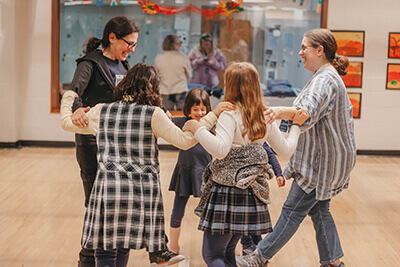 Last Thursday, the Parents Association hosted Cultural Celebration Day, an evening celebrating the diversity of backgrounds at MPA with food, music, dance and community. Some of the highlights of the event were beautiful dance performances by MPA parents and students, colorfully decorated tables set up by the hosts sharing their culture and cuisine, the ever-popular henna artist, Bilkis and Boba tea vendor, Treats. It was wonderful to experience the energy and engagement from community members. We hope to see you all next year!
Last Thursday, the Parents Association hosted Cultural Celebration Day, an evening celebrating the diversity of backgrounds at MPA with food, music, dance and community. Some of the highlights of the event were beautiful dance performances by MPA parents and students, colorfully decorated tables set up by the hosts sharing their culture and cuisine, the ever-popular henna artist, Bilkis and Boba tea vendor, Treats. It was wonderful to experience the energy and engagement from community members. We hope to see you all next year!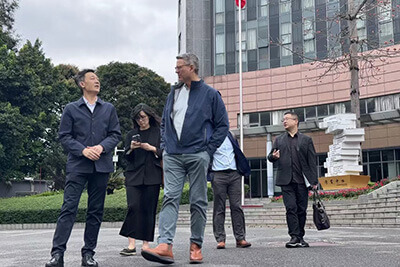 from Dr. Bill Hudson, head of school
from Dr. Bill Hudson, head of school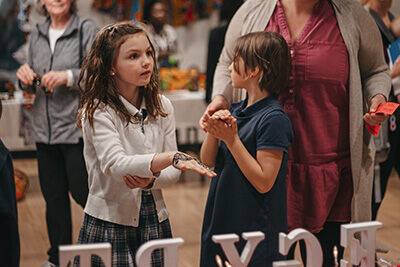 Enjoy an evening of food, music, and crafts from around the world by attending Cultural Celebration Day at MPA! The MPA Parents Association invites you to partake in the event that highlights the many different backgrounds present in our school. Cultural Celebration Day is set to take place on April 11, from 3-6 PM in the Family Commons.
Enjoy an evening of food, music, and crafts from around the world by attending Cultural Celebration Day at MPA! The MPA Parents Association invites you to partake in the event that highlights the many different backgrounds present in our school. Cultural Celebration Day is set to take place on April 11, from 3-6 PM in the Family Commons.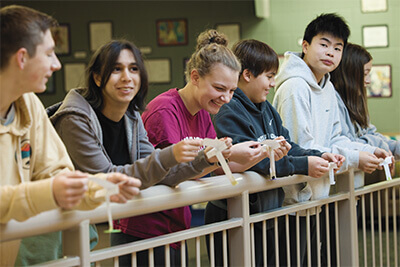 The arrival of spring brings a new season to all private schools all around the country–admission season! Here at MPA, decisions are released on March 29 and the enrollment deadline quickly follows on April 12. This means families are currently facing a decision, and sometimes that decision can be difficult. So with the help of our community, we collected a list of ten things families should consider when deciding on a private school.
The arrival of spring brings a new season to all private schools all around the country–admission season! Here at MPA, decisions are released on March 29 and the enrollment deadline quickly follows on April 12. This means families are currently facing a decision, and sometimes that decision can be difficult. So with the help of our community, we collected a list of ten things families should consider when deciding on a private school. Ella Li has been at MPA since eighth grade. She is from China and is currently living with an MPA host family. Learn more about our
Ella Li has been at MPA since eighth grade. She is from China and is currently living with an MPA host family. Learn more about our 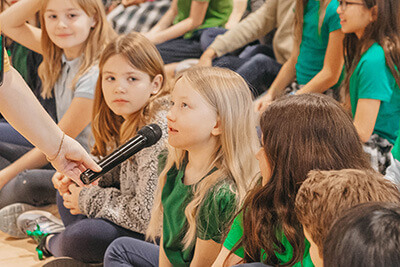
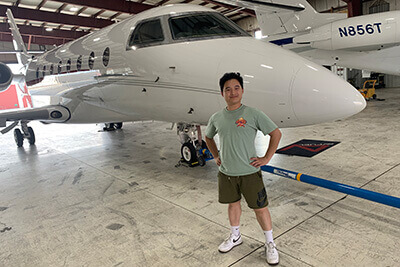 What are you currently doing, professionally and/or personally? What experiences or relationships have inspired you along the way?
What are you currently doing, professionally and/or personally? What experiences or relationships have inspired you along the way?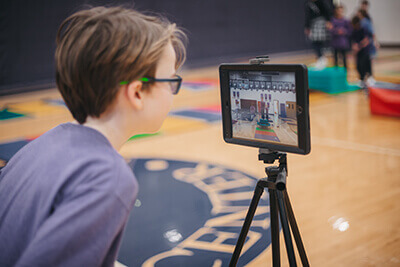 from Dr. Bill Hudson, head of school
from Dr. Bill Hudson, head of school